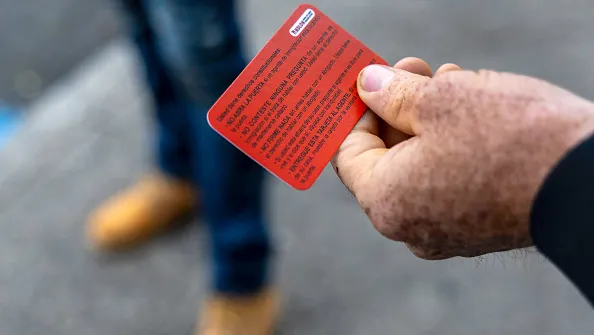Dive Brief:
- The U.S. Equal Employment Opportunity Commission filed a lawsuit alleging that automaker FCA US denied a worker’s request for a religious accommodation to observe the Sabbath and take unpaid time off for Passover, according to a news release issued July 7.
- The automobile manufacturer — known for the Chrysler, Dodge, Jeep, Ram and Fiat car brands — allegedly disciplined and eventually fired the worker, who practices orthodox Judaism, for not working the Sabbath or during Passover, per a lawsuit (EEOC v. FCA US, LLC) filed June 5 in the U.S. District Court for the Eastern District of Michigan.
- The worker “has a sincerely held religious belief that he must abstain from working during the Sabbath, a 24-hour period that begins Friday sundown and ends Saturday sundown,” the lawsuit said. The company allegedly stopped excusing the worker’s Friday absences and instituted mandatory Saturday work, per EEOC, “which conflicted with the employee’s religious beliefs.”
Dive Insight:
Such alleged actions violate Title VII of the Civil Rights Act of 1964, which prohibits discrimination or retaliation based on a person’s religion; the law also requires employers to provide reasonable accommodations for workers’ religious practices and observances, unless it would cause the company undue hardship, per EEOC.
“The EEOC will hold employers accountable for violations of Title VII’s religious protections,” EEOC Acting Chair Andrea Lucas said in the news release. “Employees have a right to request reasonable religious accommodations without fear of punishment or termination. Firing someone for asserting those rights violates federal civil rights laws.”
“Instead of engaging with the employee and providing a reasonable religious accommodation, FCA disciplined him for attendance violations for not working during the Sabbath. The employee complained of FCA’s discriminatory actions, but FCA continued to issue him attendance violations for not working during the Sabbath,” EEOC said in the news release.
The worker filed a charge of discrimination with EEOC against the Big Three automaker, and the company allegedly chose not to participate in conciliation, per the lawsuit. FCA US, which is a subsidiary of Stellantis, did not immediately respond to an HR Dive request for comment.
The lawsuit, which requests a jury trial, calls for the company to pay punitive damages and provide compensation for pecuniary and nonpecuniary losses, “including, emotional pain, suffering, inconvenience, humiliation, and loss of enjoyment of life, in amounts to be determined at trial.”
EEOC also requested the court order the company to institute policies to correct its alleged unlawful employment practices and enjoin the company from any discriminatory employment practices based on religion.






Leave a Reply